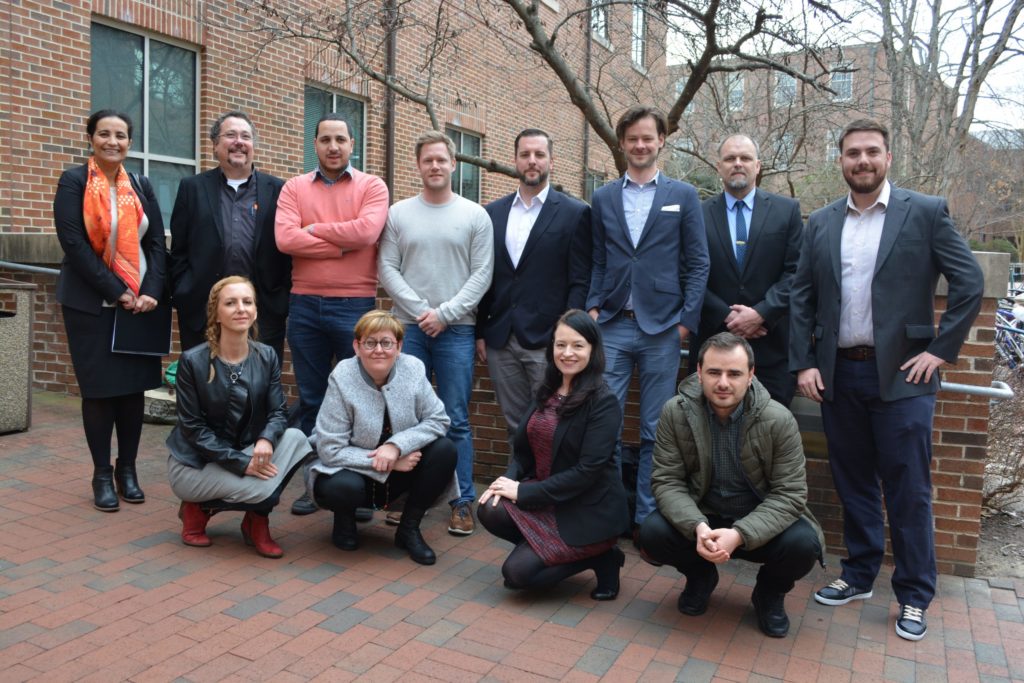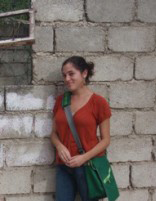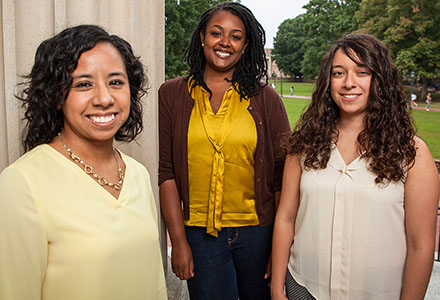
Mentors, like poetry, can take many different forms. W. R. Kenan, Jr. Distinguished Professor of Creative Writing Alan Shapiro points to his former professor J.V. Cunningham as the proof.
Shapiro, encountered Cunningham in fall 1970 during a creative writing class at Brandeis University. At the time, the chain-smoking Cunningham was already thin and frail from the emphysema that would eventually kill him.
“He was 59 years old and he looked like Methuselah,” Shapiro said, “like a creature from another time.”
There were about 40 students in the class, ranging from graduate students to first-year students like Shapiro, who had the dueling ambitions of playing basketball for Brandeis and becoming a beat poet like Allen Ginsberg.
Cunningham, on the other hand, was an American poet and literary critic who could best be described as a neo-classicist who produced pithy epigrams in perfect rhyme and meter.
That also made him an anti-modernist who disdained the free-flowing style of hipsters like Ginsberg, or for that matter, students who aspired to emulate him. Students like Shapiro.
As luck would have it, Shapiro’s poem was the first one Cunningham read aloud to the class. With an unfiltered Lucky Strike cigarette in one hand and Shapiro’s poem in the other, Cunningham read aloud in a raspy monotone that remained flat and emotionless throughout the poem’s long, twisting lines.
When he got to the end, Cunningham took a deep drag from his cigarette, gazed at the class and asked, “So, what do you all think?”
No one had anything to say, Shapiro recounted. Cunningham held up the piece of paper and commented, “This is nothing more than spilt ink,” before he crumpled it and tossed it into the wastepaper basket.
Instead of feeling crushed, Shapiro was defiant – as if Cunningham had just laid down the gauntlet.
“I was there as a basketball player so I was used to failing in public and used to having coaches chew me out,” he said, “so what happened in class was not a devastating experience for me. It was a challenge.”
Shapiro signed up for every class Cunningham taught. And almost against his will, Cunningham shaped Shapiro into the poet he aspired to be – even if it was the kind of New Age poetry Cunningham detested.
Then one day, Cunningham took him aside and said: “You are not getting any better. Perhaps you should quit school and devote yourself fully to writing and find out what you can do. When you think you got the hang of this thing you are trying, come back and maybe we can start fresh.”
To Cunningham’s surprise, Shapiro did just that.
Through the centuries, mentoring has been important in identifying and
unlocking human potential. Kevin Stewart (right), associate chair of geological sciences, gives a student individual attention outside the classroom.
An investment in the future
Just as Socrates was to Plato, Haydn to Beethoven, and Anne Sullivan to Helen Keller, mentoring has played a vital role identifying and unlocking human potential.
It also is receiving more emphasis in the academy, said David Kiel, leadership coordinator with the Center for Faculty Excellence, who oversees the center’s mentoring programs.
Executive Vice Chancellor and Provost Bruce Carney has recognized the importance of mentoring by calling on all deans and department heads to strengthen their approaches to mentoring young faculty members – an area in which the center is providing guidance.
“Faculty mentoring, at its best, is intensely personal and is a kind of gift of time and attention from a more experienced faculty member to a younger colleague,” Kiel said. “In return, the faculty member gains an intrinsic satisfaction that comes from making a positive difference in another person’s life.”
At the same time, Kiel added, the faculty mentor helps both the field and the department develop the next generation of faculty colleagues.
“Many departments and schools across campus are now reviewing and intensifying their efforts to enhance early-career faculty mentoring opportunities,” he said.
Units are implementing programs that give new faculty members one or more mentors who can provide practical help in different areas, Kiel said. Mentors help new faculty understand the path to promotion, provide practical advice on teaching and research, and help them feel they are valued members of the Carolina community.
“These programs can’t guarantee that a close career-long connection will develop,” he said. “That ultimately depends on the chemistry between the two individuals. But sometimes, the mentors and mentees do form a connection that is deep and enduring.”
Acceptance, finally
After he dropped out of Brandeis, Shapiro took off for California and then Michigan, where he continued to write as Cunningham had instructed. He drove a cab at night to earn his keep.
Even then, Shapiro said, it was his dogged commitment to keep trying that motivated him. He began to meet with Cunningham each week to go over what he had written.
“He wasn’t the kind of classic mentor in that he wasn’t nurturing,” Shapiro said. “He would say, ‘If you want to do this, you should read George Herbert,’ but he wouldn’t tell you why. I had to figure out what it was in Herbert that made him think would resonate with what I was doing. He wanted you to make the discovery on your own and he felt that anything you did that was going to end up of value you had to do on your own.”
In Cunningham’s literature courses, Shapiro would write a 40-page paper on Shakespeare, only to have Cunningham return it with terse comments like “too much … hardly seems worth the trouble.”
Finally, during their last meeting, Cunningham offered the closest thing to affirmation or praise.“What he said to me was, ‘Well, Mr. Shapiro, if I liked this sort of thing I would say you did it very well.’”
More than anything, Shapiro said, Cunningham taught him how to persevere as a writer and narrow the gap between the writer he was and the writer he aspired to become.
“The man never gave me his approval,” Shapiro said. Instead, he gave something all writers must develop to survive: a tolerance for inadequacy and failure.
Shapiro, who has taught since 1976, is now older than Cunningham was when Shapiro first met him.
“Most of the people I am teaching are not going to be writers,” Shapiro said. “My job is to make these students want to be readers. I also think that the discipline of learning how to write poetry is really good training for thinking and feeling, and the more skillful my students become with language the richer their lives will be.”
In that sense, Shapiro said, teaching and mentoring are much like writing poetry or practicing an art. “There are certain rewards that come with writing. You get published. You make a little money. But all those external rewards are secondary motivations for doing work that is intrinsically rewarding to you,” he said.
“With mentoring, though, most of the rewards that come – the real rewards – you are never there to witness because whatever value you are trying to impart about a poem, or about language, or about metaphor, or about the ability of a poem to induce realization usually happens when you are not around. Sometimes, it happens years after the student has left your class.”
Before Cunningham died of heart failure in 1985, he did get a chance to see the influence he had on Shapiro. The two became friends over the years, and while teaching at Northwestern University, Shapiro even invited his mentor to attend a reading.
“He and I were having dinner with the faculty and I made some stupid comment like, ‘Well, you know, Jim used to tell me that I was definitely a writer, but he suspected my medium was really prose,’” Shapiro said.
“Jim didn’t miss a beat. He said, ‘Well, no, Mr. Shapiro just decided to lineate his prose.’”
Shapiro, a member of the American Academy of Arts and Sciences, has written 10 books of poems, two memoirs, a collection of criticism and the novel “Broadway Baby,” which was just released by Algonquin Books.
His latest book, “Night of the Republic,” published by Houghton Mifflin, was a 2012 National Book Award finalist for poetry. For additional information, see go.unc.edu/k8MJo.
[ Story by Gary Moss, University Gazette. Shapiro and alumnus Ben Fountain were finalists for the 2012 National Book Awards in poetry and fiction respectively.The poetry award went to David Ferry and the fiction winner was Louise Erdich.]




